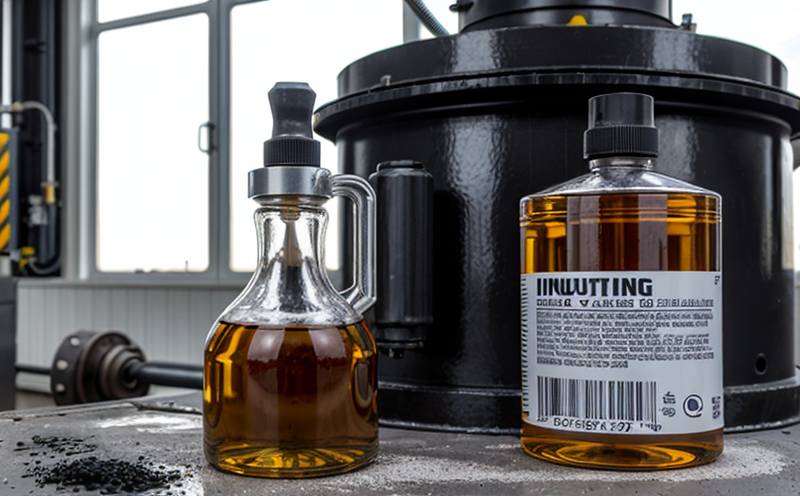JIS K2501 Acid Value Testing of Oils
The JIS K2501 method is a critical standard for determining the acid value in industrial oils. Acid value refers to the amount of potassium hydroxide (KOH) required to neutralize the acidic components present in one gram of oil sample. This testing is essential because acids can degrade lubricants, affect their performance and lifespan, leading to increased wear and potential machinery failures.
The JIS K2501 method utilizes titrimetric analysis to measure the acid value. The procedure involves dissolving a known mass of the oil in a solvent (usually ethanol) and then titrating it with standard potassium hydroxide solution until reaching the end point, which is usually indicated by a color change or pH meter reading.
The primary purpose of this test is to ensure that industrial oils maintain their quality standards. By regularly monitoring the acid value, manufacturers and users can detect any deterioration in time for corrective actions. This is crucial in industries like automotive, aviation, and manufacturing where lubricant performance directly impacts operational efficiency and safety.
The JIS K2501 standard specifies a maximum allowable acid value to ensure that oils meet quality benchmarks. Any excess acidity can indicate contamination or aging processes which may compromise the oil's viscosity and film strength properties. Regular testing allows for early intervention, preventing costly equipment failures and extending the service life of lubricants.
The methodology is particularly important in high-temperature applications where thermal degradation products contribute to increased acidity levels. Understanding these factors through regular testing helps operators make informed decisions about maintenance schedules and replacement times.
Applied Standards
The JIS K2501 standard is widely recognized for its precision in measuring the acid value of oils, particularly those used in industrial applications. It aligns closely with other international standards such as ASTM D974 and ISO 6678, ensuring compatibility across different markets and industries.The JIS K2501 method specifically addresses the need for accurate measurement in various types of industrial oils, including mineral, synthetic, and semi-synthetic bases. The standard provides detailed procedures that account for sample preparation, reagent selection, titration process, and endpoint determination.
| Standard | Description |
|---|---|
| JIS K2501 | Determination of acid value in petroleum products, lubricating oils and similar substances. |
| ASTM D974 | Standard test method for determining the neutralization number or acidity of petroleum distillates by titration with potassium hydroxide solution. |
| ISO 6678 | Determination of acid value in petroleum products and lubricating oils - Potentiometric method using potentiometric titrator. |
Competitive Advantage and Market Impact
Implementing JIS K2501 acid value testing provides a significant competitive edge in the industrial oils market. Compliance with this standard ensures that products meet stringent quality benchmarks, enhancing reliability and customer satisfaction.- Achieves regulatory compliance ensuring operational safety.
- Improves product longevity reducing maintenance costs.
- Enhances brand reputation through consistent high-quality standards.
- Sustains competitive advantage by maintaining market leadership.
Use Cases and Application Examples
The JIS K2501 acid value testing is applicable in a variety of industrial settings where lubricant quality is critical. Here are some specific use cases:
| Application | Description |
|---|---|
| Automotive Manufacturing | To ensure that lubricants used in the production line meet strict quality standards. |
| Aviation Industry | To maintain aircraft engine efficiency and extend service intervals. |
| Mining Operations | To prevent equipment failures in harsh environments. |





